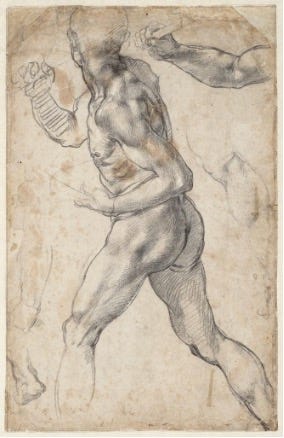
Our present world:
*wars, hunger, lack of water and medicine for millions;
*the climate crisis;
*loneliness;
*uncritical thinking and anti-intellectualism;
*drowning in a cesspool of distracting materialist desires;
*the emulsification of language, habits and traditions
via globalisation;
*the sexualization of everything;
*the false hopes of fame;
*violent nationalism and mendacious neoliberalism…etc.
Because of the state of things
I increasingly feel that those capable of creating art
should be committed to encouraging others
to engage in changing the world.
Too much creative work is devoted to decoration,
design, and entertainment,
without regard to the underlying
and often unconscious values expressed in the work.
Discovering the commitment to change
is difficult for a number of reasons:
*artists must challenge their own beliefs and values;
*for artists to challenge the dominant ideology
they must be intellectually clear about what they want the world to become;
*they must accept that they too live within history,
thus they have responsibilities partly formed by their burden of talent;
•and to challenge those with power means
they must accept they will be left outside the galleries of wealth.
We can open our eyes and see that doing nothing
allows our masters to destroy our jobs, homes, culture and therefor our identity ,
and presently, as they vandalise our earth,
they destroy the future of our grandchildren.
These are not just words…
these are REAL CONSEQUENCES of our turning the other cheek,
of hiding our noses in our wallets.

This brings me to the overwhelming beauty
of the Michelangelo exhibition of drawings
currently at the British Museum in London.
Its layout is okay but there is an ineffective use of sound,
and as now seems usual,
the numbers of people admitted to the gallery at any one time
fill the space with slow moving bodies
often blocking a part of the exhibition for too long.
It is certainly not the fault of the interested viewer
but the gallery policy on numbers (and money).
Those drawings offer deep insight into our shared humanity.
If beauty only exists in the presence of truth (which I believe)
what I could see and sense in those exquisite drawings
was a rendering of Michelangelo’s own humanity
and I could also see a glimmer of my own humanity.
That is his gift to all of us.
His work confirms that upon our shoulders
may be the better angels of our nature*.
His work binds me to him.
His work has, for many years, touched me emotionally,
encouraging me to at least gain from him a seed
not just of technique or of subject matter or of storytelling,
but of a belief that we too can rise to his hymns of being.
Looking at the tumbling violence
and scenes of universal battle,
I am usually left admiring the point by point storytelling,
the physicality and the harmonies he created across a broad plain,
but I hear a part of me whispering
if his subject matter has been of struggles
between the wealthy and poor,
between aristocrats and peasants,
between workers and owners**
I would have been far more engaged.
I am untouched by the Biblical myths.
Lately I have realised that for many years
I have been photographing the struggles within
and the consequences of capitalism in our lives,
but now that I see that we, as a species,
are allowing a small number of our species
to become very rich as they destroy our earth, our habitat, our homes
and our future, it makes me question the nature of our species,
and this draws me back to Michelangelo’s preoccupation with damnation.
My focus has been incorrect, perhaps wasted
as, like Michelangelo, I should have been looking at our problems
in regard to our species rather than in terms of economics, politics,
and culture, etc.
If you can afford the tickets and have the time
don’t miss this exhibition of genius, humanity and beauty.
NOTES
“The mystic chords of memory, stretching from every battlefield and patriot grave
to every living heart and hearthstone all over this land,
will yet swell the chorus of the Union,
when again touched, as surely, they will be,
by the better angels of our nature.”
spoken by President Lincoln in his First Inaugural Address.
March 4, 1861: Inauguration. It was an uncertain time.
**as for instance the DETROIT INDUSTRIAL MURALS
by Diego Rivera in the Detroit Institute of Art.




